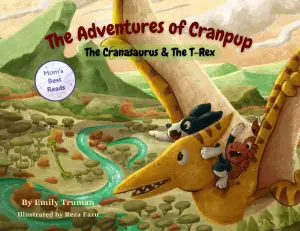Unraveling the Intricacies of The Book of Guilt by Fiona Chidgey
When I first picked up The Book of Guilt, I had an inkling that it would be captivating, but I was not prepared for the sheer brilliance that awaited me. Fiona Chidgey’s storytelling gripped me from the outset, weaving a tale that felt extraordinarily rich with both nostalgia and unease. As I turned each page, I was reminded of the complexities of childhood and the shadows that lurk beneath seemingly innocent circumstances.
At the heart of this novel are three triplets—Vincent, Lawrence, and William—living in a peculiar institution known as Sycamore Homes, overseen by their three mothers: Mother Morning, Mother Afternoon, and Mother Night. Their lives are meticulously cataloged, with daily activities and dreams documented in The Book of Dreams, while their mischief finds a home in The Book of Guilt. What unfolds is a narrative that blurs the line between innocence and manipulation, echoing deeply with reality and lingering societal issues.
Chidgey paints the world vividly, filling it with familiar elements that evoke memories from the past. I couldn’t help but ponder the significance of her setting: 1970s Britain, a time not too far removed yet laden with layers of tension. The unsettling backdrop, including hints at experiments and societal control, compels the reader to question how far we’ve come and at what cost.
I found Vincent’s perspective particularly engaging. His journey from naivety to awareness—especially as he realizes the sinister nature of the pills they take—mirrors a universal search for autonomy. One moment that stood out to me was when he discovers that, rather than healing them, the medication was designed to keep them sick. This motif felt both chilling and thought-provoking, raising alarms about manipulation disguised as care.
Chidgey’s writing style is seamless, blending humor with a darker undertone. The interplay between the children’s innocence and the mothers’ knowing laughter beautifully underscores the chasm of understanding that separates them. One exchange that captured my attention involved a discussion of “Good Samaritans,” revealing how the children’s education is as fanciful as it is limited. Their simple, yet poignant inquiries serve as a reminder of the complexities we may overlook in adulthood.
As the narrative unfolds, there’s a tantalizing sense of urgency. I remember needing to set the book down momentarily just to catch my breath—it was the kind of thrill that made my heart race, akin to pausing a gripping film. The clarity and realism of Chidgey’s prose transform the storyline into something that feels almost documentary-like, creating a vivid experience far removed from traditional literary escapism.
The Book of Guilt is undoubtedly worth more than a five-star rating; it resonates beyond its pages. Whether you’re drawn to psychological thrillers, tales of childhood innocence, or examinations of societal structures, this novel will captivate you. I can’t help but recommend it to those who appreciate deeply layered narratives that challenge perceptions and elicit both empathy and discomfort.
In reflecting on this reading experience, I found myself questioning not only the world Chidgey has created but also our own. The Book of Guilt serves as a stark reminder of the innocence we often take for granted and the realities that often remain hidden beneath the surface. Give it a read; you won’t be disappointed.
Discover more about The Book of Guilt on GoodReads >>






